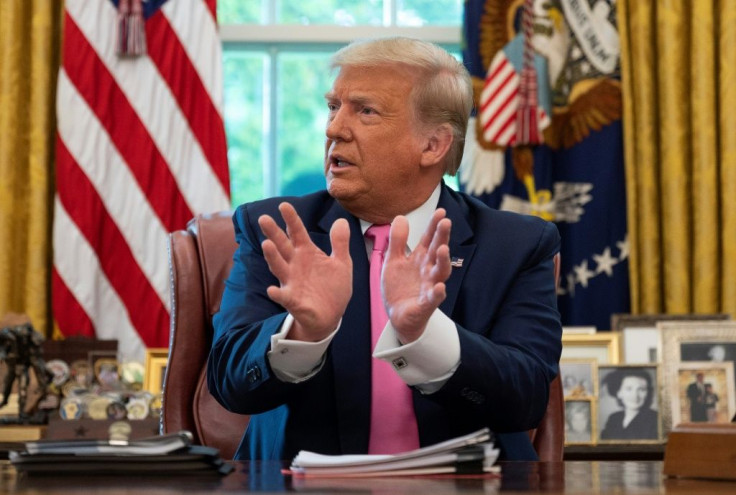Could President Trump Delay 2020 U.S. Election? POTUS' Tweets Spark New Conversation
President Donald Trump took to Twitter on Thursday to share his thoughts about postponing the 2020 U.S. presidential election due to his belief that casting mail-in ballots could result in voter fraud and "inaccurate" results. If Trump determines that he does, in fact, want to delay Election Day, could the Nov. 3 date actually be moved?
As stated by NBC News, Trump alone cannot decide to change the date where he will face off against presumptive Democratic nominee Joe Biden. Only Congress can change the date of the general U.S. presidential election as the Constitution dictates that the governing body has the authority to set the date. However, individual states can decide to delay their primary elections.
READ: President Donald Trump Calls Joe Biden A 'Trojan Horse' For 'Radical Left Agenda'
Should Election Day 2020 be delayed, it would likely present other challenges, as outlined by How Stuff Works. Any postponement would have additional limitations as counting votes takes a considerable amount of time and the sitting president has to vacate his position by Jan. 20 of the following year, as stated by the Twentieth Amendment to the United States Constitution.
While such a situation seems highly unlikely, some have theorized what a date change could look like due to the coronavirus pandemic, alleged voter fraud issues, or any other potential problems. As a result, the question has been raised if a president could declare Martial Law, use an emergency order, or file an executive order in order to upend the current system.
READ: President Donald Trump's Retweet About Coronavirus 'Cure' Removed Due To Policy Violation
"The president doesn't have any power to postpone the Election Day on his own," Richard Pildes, a constitutional scholar and law professor at New York University, told the outlet.
He added, "You can never anticipate what kind of argument people might decide to make when it's in their interest to make the argument. But I'm sure that this is a no-brainer in terms of any legal advice the president would get. The president would be told, 'You don't have the power to do that.'"
As for what would happen if Trump's term expired without a formal resolution, the outlet says that by law, the aforementioned term would still end on Jan. 20. If problems continued to arise after that date, the decision-making process would be transferred to Congress. As a result, the House would be tasked with picking the new president and the Senate would choose the VP.

© Copyright IBTimes 2024. All rights reserved.





















